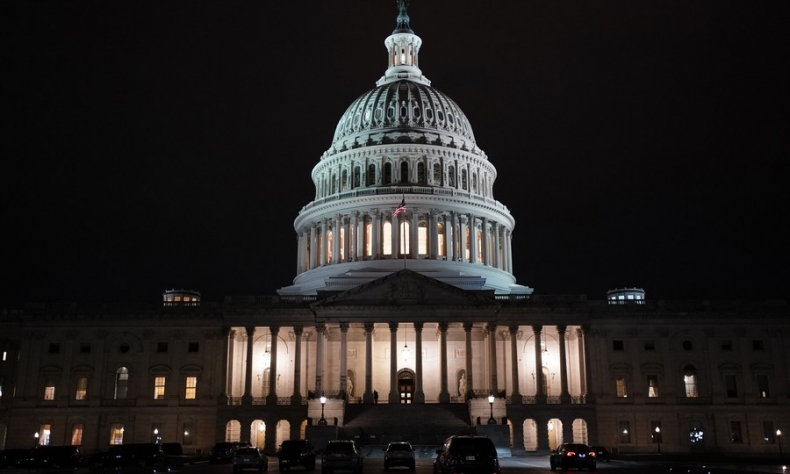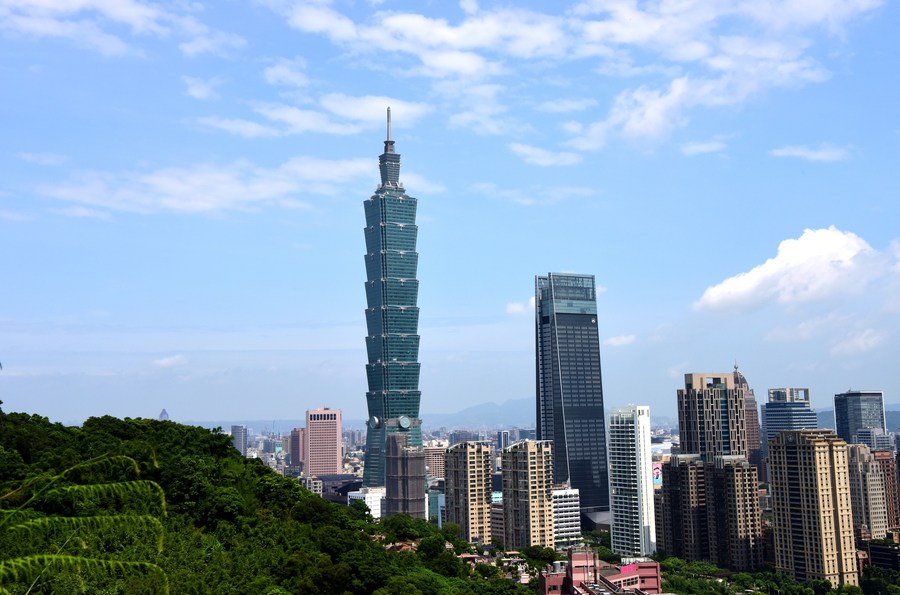Playing the ‘Taiwan Card’ Is Merely a Means to Unnerve

The great rejuvenation that China has been pursuing is not aimed at dominating the world, but more at making possible the impossible in the fields of economy, science, technology, culture and improving people’s living standards.
In order to get the Taiwan authorities to attend the so-called “Summit for Democracy,” the United States has racked its brains to try and avoid overly provoking China.
The Taiwan question has always been the core factor affecting Sino-U.S. relations and one of the “trump cards” for the U.S. to contain China’s rise. As the power gap between the two countries continues to narrow, the strategic value of the “Taiwan card” is also on the up.
For the Taiwan authorities, no matter the capacity in which they attend the summit, it’s all about the placebo effect. As the reunification of China has progressively grown into an irreversible historical trend, the island’s authorities regard this U.S.-hosted summit as the last straw to clutch at in order to achieve independence. An invitation to the summit for the Taiwan authorities is like a confirmation that the American security sanctuary still stands and can be used to seek de jure independence. The nature of the Taiwan question is the competition between China and the U.S., with “democracy” just an excuse for the U.S. to intervene in the matter by claiming that “defending Taiwan is defending democracy.”
Yet it is neither possible for Taiwan authorities to rely on the U.S. for independence, nor feasible for the U.S. Government to use Taiwan to control China.

Obviously, this democracy summit has little to do with real democracy. In the context of dwindling American strength and leadership, the U.S. is trying to reestablish a system of international relations under the guise of “democracy” to confront China and Russia. The U.S. understands it is unrealistic to provoke a new cold war as the Taiwan question can only be a means to unnerve. Supporting “Taiwan independence” will inevitably meet with a Chinese counteroffensive–the losses outweighing the gains.
To a large extent, the summit’s attendees are not blind followers of the American system. In fact, according to the latest report released by Pew Research Center on November 1, only 17 percent of people outside the U.S. believe there is still such a thing as the American democratic model. They identify with and maintain the world hegemony of the nation, a comportment stemming from an inertial thinking and concern about the uncertainties the future holds.
But on the other hand, countries that have diplomatic ties with China are all too aware that recognizing the one-China principle is the political basis for their dealings with China. The recent case of Lithuania can serve as a cautionary tale. China downgraded its diplomatic ties with the Baltic state on November 21, expressing strong dissatisfaction with Vilnius for letting Taiwan open a de facto embassy in the country.
From beginning to end, the U.S. has underestimated the determination of the Chinese people to safeguard national unity and territorial integrity. A mistaken American perception of the Taiwan question is that it believes China’s complete reunification will mark a milestone in China’s rise and the aftermath will see the country completely rid itself of the shackles of the first and second island chains, which are created by the U.S. to constrain China, thus becoming a military force that can compete with the U.S. for global hegemony.
Nevertheless, this kind of Western logic does not apply to China, which has never in history been a militaristic empire. The great rejuvenation that China has been pursuing is not aimed at dominating the world, but more at making possible the impossible in the fields of economy, science, technology, culture and improving people’s living standards. The complete reunification of the Chinese mainland and Taiwan is an inevitable requirement for the great rejuvenation of China.
Summit or no summit, China has both the confidence and the determination to move forward.
 Facebook
Facebook
 Twitter
Twitter
 Linkedin
Linkedin
 Google +
Google +










